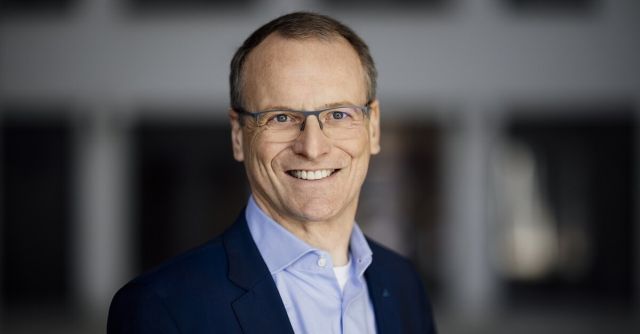
Global certifications, a must for Indian firms to enhance security and access, says TÜV Rheinland CEO


Germany-headquartered TÜV Rheinland, a global provider of independent testing and certification, plans to expand its presence in the Indian market with a focus on industrial and workforce transformation.
In an interaction with TechCircle, Ing. Michael Fübi, Group CEO, TÜV Rheinland – the company with annual revenues of over 2.7 billion euros and 27,000 employees in over 50 countries – spoke on the company’s growth strategy in India, its focus on technology practices and why global certifications are essential for Indian enterprises.
“TÜV Rheinland is deepening its presence in India to promote responsible AI adoption and ESG compliance, as domestic companies aim to be part of the global supply chain,” Fübi said.

“We are collaborating with local and global enterprises, regulators, and academic institutions to build capabilities—whether through targeted sustainability training or sector-specific certification programs. Our mission is to support India’s industrial progress while embedding global standards of risk management, compliance, and trust,” he said.
Currently, the company employ over 1,100 professionals across India, with strategically located offices and labs in major hubs like Bengaluru, New Delhi, and Mumbai.
Fübi emphasised India's role as a pivotal hub for industrial transformation and innovation, aligning with TÜV Rheinland’s purpose of a safer, more sustainable world. The company’s focus extends to supporting India's development goals in infrastructure, energy, mobility, and digitalisation, he mentioned.

According to him, “For Indian exporters, internationally recognised certifications are crucial for global competitiveness, acting as a 'passport' to new markets. TÜV Rheinland's certifications confirm adherence to quality, safety, and regulatory standards, signalling world-class operations to international partners and facilitating confident expansion into the global market.
Asked how governments and industries are rethinking the cybersecurity standards for critical infrastructure, especially with rising geopolitical tensions and digital interdependence, Fübi said, “We are witnessing a global realignment in how nations approach cybersecurity - not just as a technical requirement, but as a pillar of national resilience.”
According to him, “Critical infrastructure, such as energy grids, water systems, transportation, and healthcare, is now recognised as deeply vulnerable to cyber threats. As a result, governments are revisiting cybersecurity frameworks to focus on systemic risk, cyber-physical convergence, and cross-sector dependencies.”

At the same time, industries are moving from a compliance mindset to a resilience mindset. The priority is no longer just meeting regulatory thresholds but continuously testing the integrity of digital assets against evolving threats. Standards such as IEC 62443 and ISO/IEC 27001 are being extended and adapted to accommodate real-time monitoring, threat modelling, and AI-based threat detection. That said, cybersecurity is now embedded in national policy and industrial design, he believes.
Fübi further said that India is well-positioned to adopt a risk-based cybersecurity approach, embedding security into systems across sectors and ensuring interoperability. “A scalable architecture requires harmonised standards, public-private collaboration, and participation in global frameworks. TÜV Rheinland offers its cybersecurity expertise as a partner in this area,” he said.
According to Fübi, “Cybersecurity maturity varies significantly across regions, not only in terms of technology adoption, but also in how security is integrated into organisational processes and governance frameworks.”

He agrees that developing economies like India, with rapid digital adoption, may face challenges in establishing comprehensive cybersecurity practices, including supply chain vulnerabilities and limited access to skilled professionals, while more mature markets face challenges related to legacy systems and the complexity of managing multiple security vendors. In both, fostering a culture of assurance is critical.
As a way to improve security and global market access, global certifications are essential for Indian enterprises, he said. “Conformance with standards like IEC 62443 and ISO 27001 is demanded by global buyers in sectors like automotive and energy. Certification strengthens internal processes, builds trust, and opens doors to regulated markets,” he said.
TÜV Rheinland India operates over 30 laboratories and serves diverse customers across 20 major industries. “In line with our growth strategy and upcoming projects, we continue to prioritise increasing our workforce, particularly in the areas of green energy, ESG compliance, smart cities and industrial automation,” said Fübi.

